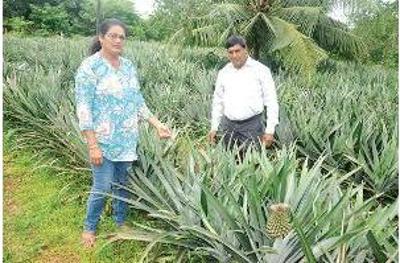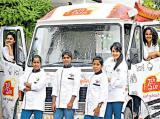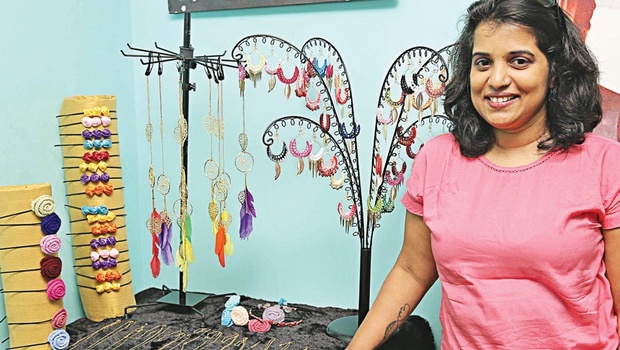Thondebhavi (Chikkaballapur District) :
The last time Thondebhavi came under the spotlight was almost a year ago when a cloud of ash from a nearby cement plant enveloped it. Now, this nondescript village is grabbing headlines for becoming the first in the country to have a self-repairing road.
Thondebhavi, 65km from Bengaluru and with a population of about 1,200 people, has a 700-metre road with a crack healing capability. This road is the brainchild of Prof Nemkumar Banthia of the civil engineering department at the University of British Columbia, Canada.
This will be a game-changer in road-building, especially in a country where roads are dotted with cracks and potholes. M Suresh of the National Institute of Engineering-Mysuru, who coordinated with Thondebhavi village authorities and University of British Columbia, said: “This road has been built with high strength concrete supplemented with fibres which have a hydrophilic nano-coating. This coating absorbs water. Since most road cracks develop because of unhydrated cement, the hydrophilic coating produces silicates that closes the cracks.”
The lifespan of these roads is 15-20 years. The road, about 100 mm thick and comparatively less than the usual cement road, would go a long way in reducing road-laying cost. Since fly ash is used for these roads, the carbon output is low.
The 700-metre stretch, which connects the village with the road to nearby Gauribidanur town, has enthused residents. Kantharaj, a resident and also president of Kolar Chikkaballapur Districts Co-operative Milk Union Ltd (KOMUL), said: “Earlier, people used to have a tough time on the slushy road. This stretch has come as a boon to villagers and they can transport their agricultural commodities to various places without any hassles.”
Jyothi Reddy, president, Thondebhavi gram panchayat, said the road has been of great help to people of the village. She said she’ll convince nearby cement factory authorities to take up many more roads in the village panchayat. Aswathachar, manager, Pragathi Krishna Gramina Bank, Thondebavi branch said the quality and finish of the road is fine and it’s expected to last longer compared to the normal cement one.
source: http://www.timesofindia.indiatimes.com / The Times of India / News Home> City News> Bangalore / TNN / October 18th, 2016






